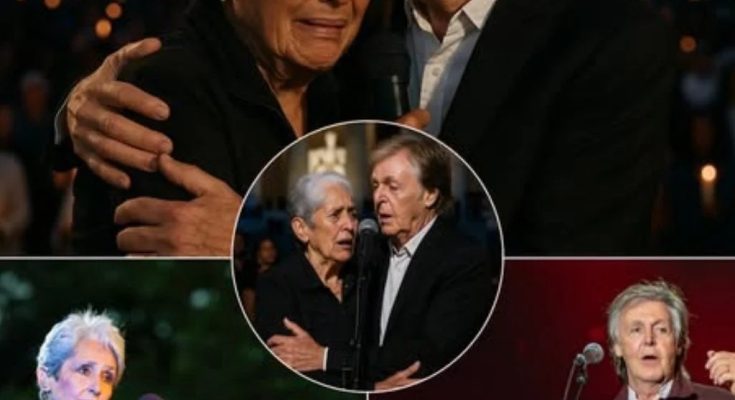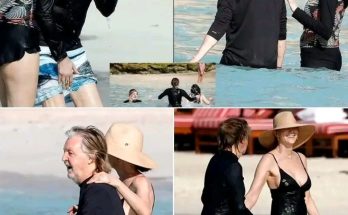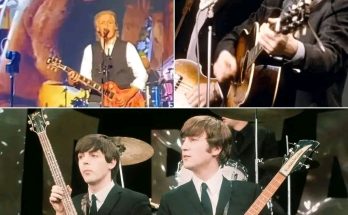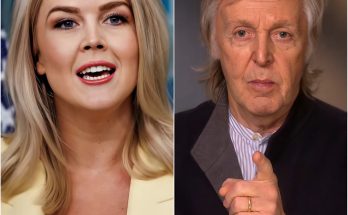WASHINGTON D.C. — In an era defined by division, a moment of pure, unvarnished humanity stopped time on the steps of the Lincoln Memorial. Two titans of the 20th century, Joan Baez, 84, and Sir Paul McCartney, 83, reunited not just for a performance, but for a plea—a musical prayer that left a crowd of 50,000 breathless and in tears.
The event, a rally for global peace, had already featured stirring speeches and musical performances. But the air shifted palpably when Baez, the queen of folk and the moral conscience of a generation, was helped to the microphone. Her voice, though weathered by time, retained its clarion clarity as she began the first haunting lines of “The Night They Drove Old Dixie Down.”
As she reached the chorus, a figure emerged from the wings. Paul McCartney, a man who needs no introduction, walked out with a humble grace, a harmonica in his hand. But before a note was played, something more profound happened. Seeing her old friend, Baez’s composure broke. Her voice wavered, and she reached for him, clutching his arm as if drawing strength from six decades of shared history.
The music paused. McCartney, his own eyes glistening, wrapped a steadying arm around her. The crowd fell into a silence so deep you could hear the wind rustling the flags. For a long moment, they stood there, two legends in the autumn of their lives, holding onto each other not as icons, but as two people burdened by the world’s pain and fueled by a relentless hope.
It was then that Baez, looking out at the sea of faces, whispered a line that was not in the setlist, a raw ad-lib that would define the day: “My heart is pleading with you…”
The words hung in the air, a desperate, maternal entreaty from a woman who has spent her entire life pleading for peace. It was this vulnerability that shattered the remaining barriers between performer and audience.
Then, they began again. McCartney lifted his harmonica, and the familiar, mournful wail of “Oh! Darling” blended not with a rock band, but with the folk ballad of the American South. It was a fusion no one could have predicted—The Beatles meets folk tradition, Liverpool meets Appalachia on the steps of a monument to unity. Their voices, McCartney’s familiar rasp weaving around Baez’s trembling soprano, created a harmony that was less about perfect pitch and more about perfect feeling.
They weren’t performing; they were testifying. Every note was a memory of protests past, of songs that had fueled movements, of a shared belief that music could truly change the world.
By the final verse, there was not a dry eye in the crowd. Grizzled veterans of the ’60s counterculture, young activists, and everyone in between were united in a cathartic release of emotion. It was more than a concert; it was a collective mourning for what is broken and a powerful rekindling of the belief that it can be mended.
As the last note faded, Baez rested her head on McCartney’s shoulder. He held her there, a solid rock in a swirling emotional sea. No bow could follow such an act. They simply turned and walked away together, leaving a stunned silence in their wake, before the crowd erupted in a weeping, thunderous ovation that was less applause and more a promise—a promise heard by two legends who, for one breathtaking moment, made the world feel small enough to heal.



